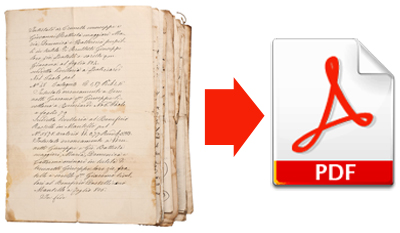
Digital preservation has become a feasible proposition for library and information professionals around the world. Rare documents and manuscripts as well as microfilms are converted and preserved in libraries for diverse communities and in different fields such as education, science, culture, health and so on.
PDF Conversion Offers Many Advantages
PDF is one of the formats in which processed data is stored. The PDF format is ideal for sharing information and these files can be opened on any operating system. PDF conversion offers many advantages. Let us look at some of the other advantages.
- True portability and mobility of valuable documents
- PDF files support metadata, OCR
- It ensures security, various security options can be set
- Ideal for secure file transfer over the internet
- Digital signature facility ensures that the content cannot be manipulated
- These are ideal for viewing, sharing, printing and controlling documents
- The format is compact
- It helps to compress files and reduce size without losing the quality
- Visual elements are preserved when converted to PDF formats
- It supports interactive functions such as file attachments, hyperlinks and mark-up and text notes
- Wider accessibility to anyone, anywhere at any time
- It can meet simultaneous access requests for a document by easily creating multiple copies
There are many reasons why historical documents should be digitized and preserved; the main objective though is to reach out to the community. Putting these documents online ensures increased accessibility because users will not require specialized help to gain access. Moreover, with online repositories there are no limiting hours.
When a history digitization project involves large volume conversion, the best way to ensure efficiency, speed, cost-effectiveness and professionalism is by outsourcing. A reliable data entry and document conversion company can convert the documents into PDF formats within the required turnaround time and efficiently manage large volumes of data. Items that can be converted into electronic documents include diaries, postcards, maps, oral histories, audio and video files, newspaper clippings, photos, letters and so on. Digitizing old history documents is an effective solution when it comes to sharing and document archiving.



